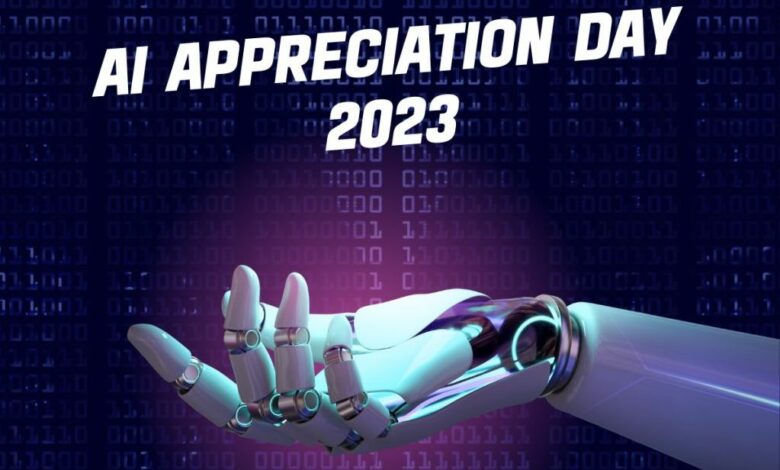On AI Appreciation Day (16/7), below are the expert opinions on the importance of trust in AI and the steps needed to establish it. In this story, we present their insightful perspectives and strategies for fostering trust in the age of AI.
A study Boston Consulting Group (BCG) and The Brij Disa Centre for Data Science and Artificial Intelligence (CDSA) at the Indian Institute of Management Ahmedabad (IIMA), says 10% of Indian organizations have transformed their AI capabilities in the last 3 years. The report emphasizes the significance of achieving an advanced level of AI maturity for success in today’s business landscape. In fact, AI-maturity and adoption is crucial for the nation’s success.
Here’s a compendium of opinions from industry experts:
Professor Bharat Bhasker, Director of IIMA
 India is poised to enter into a digital revolution where successful AI adoption by our industry can be a crucial determinant of India’s competitiveness globally. Successful adoption of AI could add up to 1.4 percentage points annually to real GDP growth of India. From the perspective of corporates, successful adoption of AI is expected to add over a five-year period, INR 1.5-2.5 trillion in incremental pre-tax profit for the top 500 Indian companies alone. This presents an incredible opportunity for the Indian industry and our companies can leverage the widespread internet access and cost -effective labour to move ahead and align themselves to the global AI maturity standards.
India is poised to enter into a digital revolution where successful AI adoption by our industry can be a crucial determinant of India’s competitiveness globally. Successful adoption of AI could add up to 1.4 percentage points annually to real GDP growth of India. From the perspective of corporates, successful adoption of AI is expected to add over a five-year period, INR 1.5-2.5 trillion in incremental pre-tax profit for the top 500 Indian companies alone. This presents an incredible opportunity for the Indian industry and our companies can leverage the widespread internet access and cost -effective labour to move ahead and align themselves to the global AI maturity standards.
Sumit Sarawgi, Managing Director & Senior Partner, BCG
Investments into AI could deliver extraordinary returns but success hinges on deploying AI at scale. An organization wide commitment is required in successful AI driven transformation of the organization. The reason being success from AI adoption, algorithms drive approximately 10% of the success, while data and technology infrastructure adds a further 20%. The remaining 70% hinges on people, processes, and business transformation.
Michael P. Morris, Co-Founder, Torc
 In the ecosystem of software development, the adoption of workplace AI is already having a positive effect on daily operations, but its impact on recruitment, productivity and talent management hasn’t yet come close to being realized. Finding ways for AI to enhance hiring and worker experience, as well as reward culture and performance gains, will translate directly to better future of work environments and bottom-line returns. Adding intelligent technologies is about augmenting human resources and providing greater opportunities to innovate. AI’s promise is not about replacing people and eliminating jobs – AI complements and speeds a person’s capabilities and communication mediums to efficiently and cost-effectively improve worker and customer experience, the products created, and ultimately higher satisfaction for an entire talent network.
In the ecosystem of software development, the adoption of workplace AI is already having a positive effect on daily operations, but its impact on recruitment, productivity and talent management hasn’t yet come close to being realized. Finding ways for AI to enhance hiring and worker experience, as well as reward culture and performance gains, will translate directly to better future of work environments and bottom-line returns. Adding intelligent technologies is about augmenting human resources and providing greater opportunities to innovate. AI’s promise is not about replacing people and eliminating jobs – AI complements and speeds a person’s capabilities and communication mediums to efficiently and cost-effectively improve worker and customer experience, the products created, and ultimately higher satisfaction for an entire talent network.
Ritesh Chopra, Director Sales and Field Marketing, India & SAARC Countries, Norton
AI can be both a method for carrying out cyberattacks as well as a way to protect against them. With the expansion of tools such as ChatGPT, attackers can more easily generate human-like text to carry out their social engineering attacks, which rely on tricking someone into giving up confidential information. By playing on people’s emotions and natural tendency to trust, social engineers are able to manipulate people into divulging sensitive information like passwords and bank account details. With ever growing frequency and sophistication of attacks, it grows harder for people to distinguish between legitimate and malicious communications.
Karthikeyan Sridossan, Executive Vice President – Strategy & Growth, Indium Software
 In the era of exponential growth driven by transformative technologies, AI has emerged as an indispensable ally for businesses. With the rapid growth of Generative AIs such as ChatGPT, Bard, DeepMind, etc., businesses are ready to harness the true potential of AI, which is believed to transcend boundaries and ride the future waves of disruption. Coupled with a modern data stack and traditional NLP engines for pre-processing, governed by Responsible AI principles, Generative AI can unleash limitless possibilities driving enterprise agenda through technology. Witnessing the evolving trend of customers across industries experimenting several business use cases in this space, it is evident that the future is already here.
In the era of exponential growth driven by transformative technologies, AI has emerged as an indispensable ally for businesses. With the rapid growth of Generative AIs such as ChatGPT, Bard, DeepMind, etc., businesses are ready to harness the true potential of AI, which is believed to transcend boundaries and ride the future waves of disruption. Coupled with a modern data stack and traditional NLP engines for pre-processing, governed by Responsible AI principles, Generative AI can unleash limitless possibilities driving enterprise agenda through technology. Witnessing the evolving trend of customers across industries experimenting several business use cases in this space, it is evident that the future is already here.
Lokesh Nigam, Co-founder and Director, Kognoz
Artificial intelligence is an expansive field with profound implications, especially in human resource management. HR departments increasingly rely on AI to inform decisions related to hiring, employee development, and retention. On this AI Appreciation Day, Kognoz celebrates the transformative impact of AI in talent acquisition. By harnessing cutting-edge conversational intelligence, we have revolutionized traditional hiring methods. Our platform empowers client companies, delivering unmatched efficiency, cost savings, and a competitive advantage. With advanced AI capabilities, we provide a leading-edge solution that optimizes the hiring process and outperforms competitors. Let’s honor the incredible potential of AI to revolutionize talent acquisition and unlock boundless opportunities for organizations worldwide.
Building trust in AI is a collective effort involving industry leaders, researchers, policymakers, and individuals. By prioritizing security, ethical practices, user empowerment, collaborative standards, and education, we can establish a foundation of trust in AI. As we celebrate AI Appreciation Day, let us embrace these expert insights and work towards a future where AI technologies serve as trustworthy and reliable companions in our daily lives.
Ram Singampalli, Chief Delivery Officer, Emids
 As AI takes center stage globally, it stands at the precipice of revolutionizing our society, propelling us forward with unparalleled social and economic growth while opening new avenues of existence. Its impact is set to surpass even that of the internet, permeating every aspect of our lives and reaching every individual. With responsible and equitable application, AI has the potential to lead humanity into a new era of progress.
As AI takes center stage globally, it stands at the precipice of revolutionizing our society, propelling us forward with unparalleled social and economic growth while opening new avenues of existence. Its impact is set to surpass even that of the internet, permeating every aspect of our lives and reaching every individual. With responsible and equitable application, AI has the potential to lead humanity into a new era of progress.
The advent of Generative AI promises transformative changes across various industries and disciplines, empowering individuals, and businesses alike to create and access, sparking a wave of productivity enhancements. It will also play a pivotal role in transforming healthcare, offering immense opportunities to improve patient outcomes, enhance diagnostic accuracy, and streamline medical processes. By striking a balance between technological advancements and human expertise, AI can usher a new era in healthcare delivery, making it more efficient, accurate, and patient-centered. In future, healthcare services will be more affordable and accessible based on advances brought by AI.
As AI evolves rapidly, navigating its power requires careful consideration. Yet, it is undeniable that future generations will marvel at how we once lived without the transformative capabilities of AI. Responsible adoption, with a focus on fairness and ethics, will be key to unlocking its full potential and ensuring that its benefits are accessible to all.
The widespread adoption of AI, including Generative AI, will drive unprecedented advancements, reshape industries, and solve complex challenges. This exciting journey combines human ingenuity with artificial intelligence to co-create a future beyond imagination. Together, we can shape this AI-powered world, paving the way for progress, prosperity, and a brighter future for generations to come.
Sangeet Kumar, CEO & Co-Founder, Addverb
AI continues to shape and revolutionize our lives in unimaginable ways, spanning across various industries such as healthcare, transportation, finance, and entertainment. As we celebrate the remarkable advancements in artificial intelligence, we recognize its transformative impact on supply chain and warehouse automation. At Addverb, we have implemented AI through our robots and automation system, to transform traditional warehouses into autonomous distribution centres, by optimising different aspects like storage, picking,sorting, and shipping of goods. Convergence of AI and human expertise creates a powerful synergy, resulting in lower operational costs, higher productivity & accuracy and also enhancing worker safety.
Raja Poladi, Head of India Development Center, SpringML, Inc.
 AI is the gateway for a brighter future that would impact every aspect of human endeavor to build a better world. We can see a clear example of this with SpringML’s pothole detection project for the City of Memphis. We worked closely with them to not only identify 75% more potholes but also reduce city claim costs for damage due to unaddressed potholes, resulting in significant savings for the city. This also helped Memphis create safer neighborhoods that will be more attractive to businesses and home buyers.
AI is the gateway for a brighter future that would impact every aspect of human endeavor to build a better world. We can see a clear example of this with SpringML’s pothole detection project for the City of Memphis. We worked closely with them to not only identify 75% more potholes but also reduce city claim costs for damage due to unaddressed potholes, resulting in significant savings for the city. This also helped Memphis create safer neighborhoods that will be more attractive to businesses and home buyers.
PwC UK and Microsoft predict that by 2030, the use of AI for sustainable technologies could add up to USD $5.2 trillion to the world economy. AI is significantly changing every industry and I believe we are just getting started.
Chaitanya Chokkareddy, Chief Product Officer, Ozonetel
 Artificial Intelligence (AI) has transformed numerous aspects of our daily lives and is profoundly impacting the way businesses operate. With the release of ChatGPT and the transformative leap in large language models, enterprises are accelerating their plans to modernize customer experience (CX). Leaders within the CX domain will harness AI to analyze customer data, personalize interactions, and deepen customer engagement across various touchpoints. In contact centers, AI is automating routine tasks, augmenting human capabilities, and transforming the agent experience. AI-based tools such as speech analytics help brands uncover customer pain points and proactively resolve issues before they escalate.
Artificial Intelligence (AI) has transformed numerous aspects of our daily lives and is profoundly impacting the way businesses operate. With the release of ChatGPT and the transformative leap in large language models, enterprises are accelerating their plans to modernize customer experience (CX). Leaders within the CX domain will harness AI to analyze customer data, personalize interactions, and deepen customer engagement across various touchpoints. In contact centers, AI is automating routine tasks, augmenting human capabilities, and transforming the agent experience. AI-based tools such as speech analytics help brands uncover customer pain points and proactively resolve issues before they escalate.
Generative AI will make it possible for firms to respond faster to a wider range of user requests. It will also enable them to efficiently run targeted conversational marketing, sales, and customer service campaigns. This is just the beginning. Brands must build their roadmaps, planning how they will leverage AI to its full potential, so they can strategically deliver value to customers and create better experiences for them.
Prateek Bhajanka, APJ Field CISO Director, SentinelOne
Given the skill and talent shortage cybersecurity industry faces, AI has helped scale humans and lowered the entry barriers for security professionals. This will have a very positive and large scale outcome in making the world a cyber secured place.
Puneet Gupta, Vice President, and Managing Director at NetApp India/SAARC
 The technology has progressed tremendously in the last year, with many more promises and growth opportunities on the horizon. NetApp’s recent Cloud Complexity Report, for instance, found that 56% of Asia Pacific tech executives expect half or more of their cloud deployments to be supported by AI-driven applications by 2030.
The technology has progressed tremendously in the last year, with many more promises and growth opportunities on the horizon. NetApp’s recent Cloud Complexity Report, for instance, found that 56% of Asia Pacific tech executives expect half or more of their cloud deployments to be supported by AI-driven applications by 2030.
There are three broad areas where we see AI making a big contribution:
- Driving intelligence at the edge
The amount of data generated by smart edge devices and a large number of ingestion points can overwhelm compute, storage and networks at the edge. AI can enable edge-level analytics to process and selectively pass on data during ingest, create different tiers of data service, and speed up data movement.
- Increasing performance at the core
The network core is the heart of organisations’ AI data pipeline, and it demands high I/O performance. There is room for AI to be deployed to preprocess data and feed the data to the neural networks for model training, removing performance bottlenecks and accelerating AI workloads.
- Accelerating analysis in the cloud
AI and the cloud are natural bedfellows, with the cloud offering an ideal environment to develop AI workflows, run proofs of concept, and form a foundation to expand on. With the right guidance, more organisations can take advantage of this synergy going forward.
To unleash the full potential of AI, it will be essential for organisations to build a data pipeline or fabric that spans across on-premises, hosted data centre and hyperscaler cloud, with real time visibility and manageability. This will let organisations harness all available information in real time and ultimately, maximise business impact.
The future of AI is dazzling, with many more applications expected to emerge over the next year that we don’t yet envision today. Hold on tight for an exhilarating ride.
Manish Gupta, Vice President, Infrastructure Solutions Group, Dell Technologies India
 The adoption rate of AI in India has been growing consistently, especially in sectors like healthcare, retail, BFSI, manufacturing, and e-commerce. The Dell Technologies 2023 Innovation Index report stated that 59% of Indian businesses are currently investing or exploring the feasibility of investing in AI, Machine Learning and advanced analytics to advance innovation for their growth. AI has been simplifying crucial business processes and helping enterprises boost their analytics, strengthen the value chain, and make business processes cost-effective while improving customer experience. For any business with a digital-first approach, AI has become a key component of their growth roadmap. This underlines the need for developing a sound AI strategy—moving from AI-possible to AI-proven—encompassing technology, people, and processes. With automation and security, AI has the capability to accelerate digital transformation enabling faster time-to-market, improved customer experiences, and an unmatched efficiency.
The adoption rate of AI in India has been growing consistently, especially in sectors like healthcare, retail, BFSI, manufacturing, and e-commerce. The Dell Technologies 2023 Innovation Index report stated that 59% of Indian businesses are currently investing or exploring the feasibility of investing in AI, Machine Learning and advanced analytics to advance innovation for their growth. AI has been simplifying crucial business processes and helping enterprises boost their analytics, strengthen the value chain, and make business processes cost-effective while improving customer experience. For any business with a digital-first approach, AI has become a key component of their growth roadmap. This underlines the need for developing a sound AI strategy—moving from AI-possible to AI-proven—encompassing technology, people, and processes. With automation and security, AI has the capability to accelerate digital transformation enabling faster time-to-market, improved customer experiences, and an unmatched efficiency.
The successful adoption of AI requires a robust IT infrastructure, network architecture, and data framework which can support the development and deployment of AI models at scale. AI automation and operation platforms will solve business problems and run projects from conception to production. According to the Dell Technologies 2023 Innovation Index report, 62% of organizations plan to increase spending on AI, including people, processes, and technology. By overcoming challenges and following best practices such as identifying objectives, choosing the right AI tools, and analysing the performance, organizations can develop an AI strategy that delivers real business value while mitigating risks and ensuring ethical use of the technology.
With the emergence of Generative AI, new business opportunities will be open for exploration to help with higher-level of decision-making. This will allow us to effectively reach more customers, and provide better outcomes at the workplace, along with a profound potential to automate complex processes, improve customer interactions and unlock new possibilities with better machine intelligence.
Source: Various PR agencies in India.









